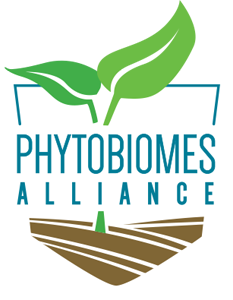
Surya Saha

Role in Phytobiomes Alliance
AgriVectors consortium, Coordinating Committee
Affiliation
Boyce Thompson Institute
Position
Senior Bioinformatics Analyst
Research Interests
- Bioinformatics (genomics, metagenomics, transcriptomics, proteomics)
- Vector biology
- Insect microbe interactions
- Plant pathogen interactions
- Databases for transcriptomic, genotypic and phenotypic data
- Systems biology
Website
Additional Links
ss2489[at]cornell.edu
Current Phytobiomes-related Projects
AgriVectors consortium
Arthropod vectors of pathogens cause enormous economic losses and are a fundamental challenge for sustainable increases in food production, yet agricultural pathosystems remain an under-served area of research. To more effectively fight plant diseases, data pertaining to a disease system needs to be consolidated, made searchable and amenable to data mining. The AgriVectors platform is an open access and comprehensive resource for growers, researchers and industry working on plant pathogens and pathosystems spread by arthropod vectors. The portal connects established public repositories with pathosystem-specific data repositories. The AgriVectors system will provide tools to enable technologies such as RNAi, CRISPR, screening bioassays, etc. to leverage current and emerging knowledge across disciplines. It will also include private and unpublished data, using passwords and secure protocols for restricted access. The AgriVectors portal will extend beyond gene-centric omics data to the broader Pathosystem-wide information, with integrated pest management, behavioral, plant health, soil health and climate data to incorporate rapid phenotyping information from research trials, building a foundation for more effectively identifying solutions to combat plant diseases.
Citrus Greening Solutions
This project is a systems-based pipeline approach for delivering commercial, grove-deployable solutions using a novel therapeutic delivery strategy and citrus transgenics. A data integration and analysis platform combining complex -omics/biological data with molecular/cellular research has been used to steer hypothesis-driven testing of inhibitors of multiple molecular pathways to provide solutions that can be optimized by combinatorial delivery to citrus. Research areas include: 1) Molecular interaction inhibitor discovery (gut membrane binding peptides, RNA aptamers and non-toxic chemical library screening) to block psyllid acquisition/ transmission of HLB and/or growth in the plant. 2) dsRNA delivery to induce psyllid RNAi responses that block HLB transmission or kill the psyllid (or both). 3) Optimization of a novel therapeutic delivery system that has negligible environmental impact, is economical in comparison to current control strategies and is highly adaptable for different solution strategies. Co-delivery with bactericides will be evaluated as complementary methods of control. To translate these therapeutic treatments into long-term solutions, transgenic research will be initiated to produce citrus expressing interdiction molecules (peptides and dsRNA) expressed in the phloem.
